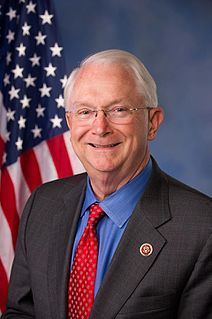A Quote by Mark Zandi
Our economy isn't going to recover until the housing market finds its footing.
Related Quotes
Housing has always been a key to Great Resets. During the Great Depression and New Deal, the federal government created a new system of housing finance to usher in the era of suburbanization. We need an even more radical shift in housing today. Housing has consumed too much of our economic resources and distorted the economy. It has trapped people who are underwater on their mortgages or can't sell their homes. And in doing so has left the labor market unable to flexibly adjust to new economic realities.
Having spent years ruining the housing markets with their interference, leading to a housing meltdown that has taken the whole economy down with it, politicians have now moved on into micro-managing automobile companies and medical care. They are not going to stop unless they get stopped. And that is not going to happen until the voters recognize the fact that political rhetoric is no substitute for competence.
The bottom line for housing is that the concerns we used to hear about the possibility of a devastating collapse—one that might be big enough to cause a recession in the U.S. economy—while not fully allayed have diminished. Moreover, while the future for housing activity remains uncertain, I think there is a reasonable chance that housing is in the process of stabilizing, which would mean that it would put a considerably smaller drag on the economy going forward.
After political crusades for 'affordable housing' ended up ruining the housing market and much of the economy with it, many of the same politicians are now carrying on a crusade for 'affordable health care.' But what you can afford has absolutely nothing to do with the cost of producing anything. Refusing to pay those costs means that you are just not going to continue getting the same quantity and quality - regardless of what any politician says or how well he says it.
They'll [China] probably be a fully developed nation. The road there just is not going to be that easy. You're going from a macromanaged, top-down economy to a market-managed, micromanaged type of economy, with all the potential corruption issues, SOE [state-owned enterprise] reform, and market reform that come with it.
Too-easy credit and millions of bad loans made during the U.S. housing bubble paved the way for the financial calamity and Great Recession that followed. Today, by contrast, credit is too tight. Mortgage loans are particularly hard to get, creating a problem for the housing market and the broader economy.
While it's absolutely important that we build housing for our low-income residents, when we are talking about opening up hundreds of sites for housing, we should be trying to build affordable housing for all of our residents struggling to pay rent. That means housing for teachers, for nurses, for janitors.
So, what people are actually left with to spend is maybe 25 to 30% of their income on goods and services, after paying taxes and after paying the FIRE sector (Finance, Insurance, Real Estate). Whether it's housing insurance or mortgage insurance. So there's an idea of distracting people. Don't think of your condition. Think of how the overall economy is doing. But don't think of the economy as an overall unit. Think of the stock market as the economy. Think of the rich people as the economy. Look at the yachts that are made. Somebody's living a lot better. Couldn't it be you?


































